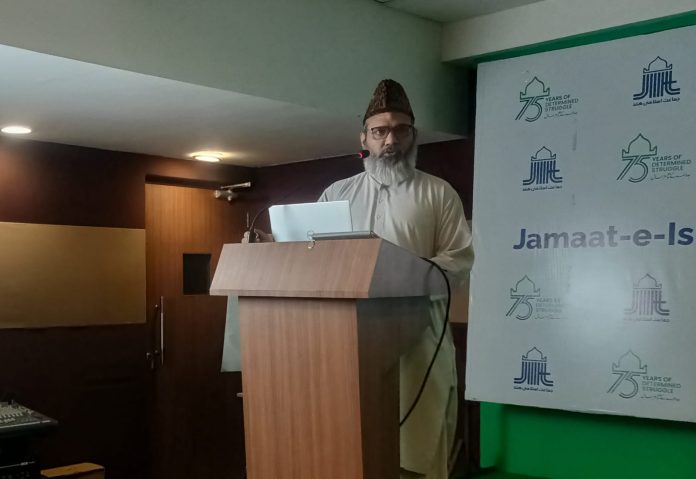6 May 2024: Dr. Mohiuddin Ghazi, National Secretary of Jamaat-e-Islami Hind, has underscored the significance of recent protests on American university campuses in support of Palestine, following the escalation of tensions since Israel started mindless attacks on Gaza on September 7. While addressing the weekly meet at JIH headquarters on Saturday, Ghazi emphasized that these protests signify a disconnect between American students and the establishment, reflecting widespread support for the oppressed Palestinians.
Drawing parallels to past movements, Ghazi recalls the impactful protests on American campuses during the Vietnam War era, which eventually led to significant policy changes. He highlights the pivotal role played by Columbia University in various protests, including those that compelled divestment from South African universities in 1985.
Ghazi believes that the current wave of protests could mark a turning point in history, with potential repercussions for the ongoing Israel-Palestine conflict. He notes the sacrifices made by students, who protest despite the high cost of education and potential impacts on their careers.
Highlighting a shift in media dynamics, Ghazi asserts that the direct activism seen on campuses has exposed biases within American and Western media, challenging the narratives propagated by Israel and America. These protests, he argues, have a ripple effect beyond campus grounds, demolishing false narratives and fostering a more nuanced understanding of the conflict.
Citing findings from a recent Harvard-Harris poll, Ghazi points out that a majority of young Americans advocate for radical solutions to the Hamas crisis, including abolishing Israel and supporting Palestinian sovereignty. The survey highlights a generational gap, with older Americans more inclined to support Israel, while youths favor Palestine.
The insights shared by Dr. Mohiuddin Ghazi shed light on the evolving dynamics of the Israel-Palestine conflict and the growing impact of grassroots activism on shaping public opinion and policy discourse.




